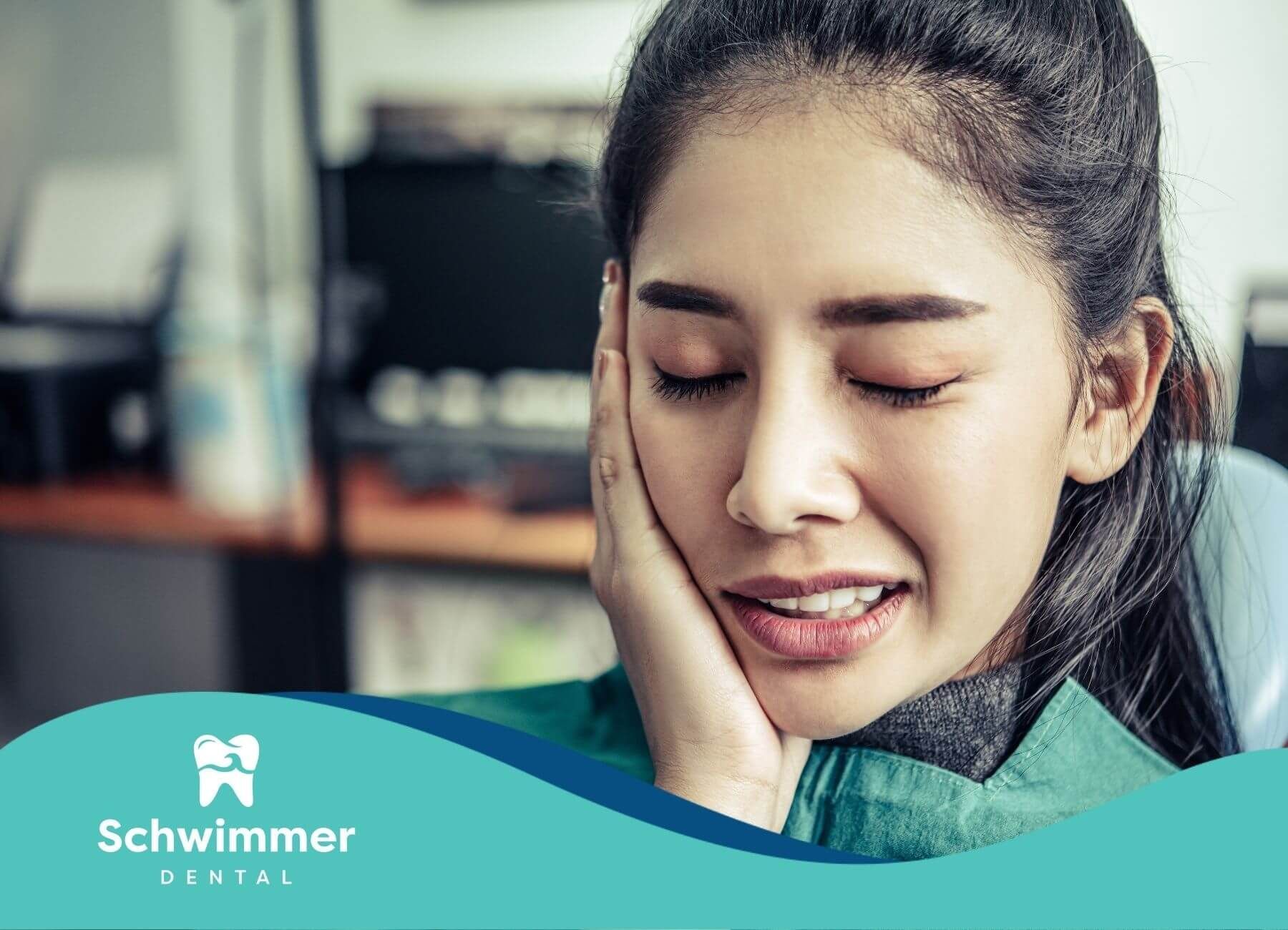Understanding How Hormone Changes Affect Your Teeth
Have you ever thought about how hormonal changes, including those from birth control pills, can affect your dental health? It’s true that hormone levels that go up or down can lead to things like dry mouth or tooth sensitivity. These hormonal changes often play a big part in your oral health. Hormonal fluctuations can change how your gums react to bacteria. They might even change how much saliva your mouth makes or lead to enamel wearing away. You might feel these changes most during times like puberty, pregnancy, and menopause. Knowing about the link between hormones, including birth control pills, and oral health can help you keep your teeth and gums in good shape. Let’s take a closer look at how these changes work and find out what you can do to keep your dental health strong.
The Role of Hormones in Oral Health
Hormones are chemical messengers in the body. These help control many things, like how your mouth stays healthy. Hormonal changes can make gums react in different ways to bacteria, raise gum sensitivity, and change how much saliva is made. For example, if women have low estrogen levels during menopause, they can get dry mouth and inflammation. This can make gum disease more likely.
For both men and women, hormones do many things for oral health, including the impact of vitamin D. If you know how your hormone levels can affect dental health, you can find ways to keep away oral health problems for a long time.
How Hormones Influence Gum and Teeth Sensitivity
You may notice your gums be sore or even bleed when you brush. This can happen because of changes in your hormone levels. When you have more hormones, like progesterone during pregnancy or puberty, there is more blood flow to the gums. This can make them more sensitive and cause swelling.
As hormonal changes affect your gum tissue, it can weaken your immune system. This makes it easier to get gum infections. Hormones, like estrogen and progesterone, can make problems like gingivitis or periodontitis worse during these times.
Keeping up with regular dental care is key when you have these hormonal changes. Make brushing, flossing, and dentist visits a top priority. Good dental care can help lower gum sensitivity that comes with changes in hormone levels. Taking care of your gums and teeth now can help stop pain and future problems. This keeps your mouth healthy for a long time.
The Connection Between Hormones and Tooth Enamel Erosion
Hormone levels can play a part in tooth enamel erosion. Yes, it is true. Hormonal fluctuations, like the ones that come with menopause or pregnancy, can change how your salivary glands work. Because of this, you may have less saliva production. If there is not enough saliva to wash away bacteria and fight off acids, your risk of enamel erosion goes up.
These hormonal changes can also make your teeth more open to acid attacks. This mix of things makes it more likely for cavities to form, and causes even more enamel loss. People, like women, who have hormonal imbalances or changes may see enamel go away faster than other people.
To fight enamel erosion linked to these changes, you need to be sure to stay hydrated, keep up good oral hygiene, and talk to your dentist for advice that fits you. These steps help bring back your saliva levels and save your tooth enamel for the long term.
Key Life Stages and Hormonal Impact on Dental Health
Our oral health changes during the stages of life because of hormonal fluctuations. When you go through puberty, your gum sensitivity gets higher because there is more estrogen and testosterone in the body. Being pregnant brings more problems, like having swollen gums and a bigger chance of getting gum disease. Menopause changes the mouth again. It lowers saliva production, so the gums are more at risk.
It is good to know how hormones affect oral health at different stages of life. This knowledge helps you take better care of your gums and teeth. Now, we will talk more about each stage.
Dental Health During Puberty: What to Expect
Puberty can be a tough time for oral health because of changes in hormones like estrogen and testosterone. When these surge, the gums get more sensitive. This can cause them to swell and become sore. Teens who wear braces during puberty face their own extra issues. Braces trap food and this makes gum inflammation even worse.
These ups and downs in hormones also affect the way the immune function system works. Because of this, teens can get more plaque, and gum disease becomes a bigger problem. If you do not take good care of your teeth, it’s easy for gingivitis to get worse. Over time, this can lead to even bigger oral health problems.
It is very important to take care of your oral hygiene during puberty. Brush your teeth two times each day with fluoride toothpaste. Floss once a day. Try to see your dentist on a regular basis. If you notice things like bleeding or swollen gums, that is a sign you should visit your dental care provider right away. Taking these steps helps protect your oral health and prevent gum disease caused by changes during this time.
Pregnancy and Oral Care: Essential Practices
Pregnancy is a special time in life. Your body goes through many hormonal fluctuations, creating a hormonal roller coaster that can have a big effect on your oral health. When estrogen levels and progesterone go up, you may have a higher chance of getting pregnancy gingivitis. This is when your gums get swollen and may bleed easily. If you do not take care of this, it can turn into periodontal disease and cause more problems.
Some people also get pregnancy tumors, called pyogenic granulomas. These are not harmful, but they happen because of hormonal shifts. They can show up on your gums and make it harder to keep up with good oral hygiene.
It is important to stay focused on oral health every day. Make it your habit to practice good oral hygiene and always watch for any changes in gum health. Eating a balanced diet is the best way to keep your mouth healthy during pregnancy.
Menopause and Its Effects on Oral Hygiene
Menopausal women often have more oral health problems because of lower estrogen levels, which significantly impact a woman’s oral health. Many start to get dry mouth, burning mouth syndrome, and have a higher chance of gum disease. When saliva production drops, the mouth can’t fight off harmful acids as well. This adds to the risk of tooth decay.
During menopause, women also experience a loss of bone density. This can hurt dental health. If the jawbone gets weak, teeth may shift or the gums may pull back. These changes can happen fast and lead to big problems if not looked after right away.
To manage the way menopause affects oral hygiene:
- Stay filled up with water and use saliva substitutes to help with dry mouth.
- Go for regular dental check-ups so any gum disease or tooth decay can be found early and treated.
- Talk to your dentist about problems like burning mouth syndrome to get care that works best for you.
Menopause does not have to lead to poor dental health. Good dental care and early action can help keep your mouth healthy.
Conclusion
Knowing how hormone changes affect your teeth is important for keeping good oral health and maintaining healthy teeth at any age. Hormonal changes can make your teeth feel more sensitive, cause loss of enamel, and give rise to other dental problems. When you are aware of these changes, you can take steps to protect your teeth and make sure they stay healthy and strong. Big shifts in hormones happen at different times like puberty, pregnancy, and menopause. Each of these times brings its own set of challenges and chances to improve your dental routine. When you make oral health a top goal and change your habits to match these hormonal changes, you can lower your risk of having tooth and gum issues. If you want to know more or need tips just for you, feel free to book a consultation.
Frequently Asked Questions
Can hormonal changes lead to tooth decay?
Yes, hormonal changes can make the risk of tooth decay go up. A change in hormone levels can make your body produce less saliva. This makes it harder for it to defend teeth against sugary foods and bacteria. To help lower the risk of tooth decay during this time, you should have good oral hygiene and not skip regular dental visits. This way, you can take care of your teeth and lower the risk of tooth decay caused by hormonal changes.
What specific hormonal changes can impact dental health?
Hormonal changes can have a big effect on dental health, particularly due to female hormones. During puberty, pregnancy, and menopause, the body goes through a lot of changes. When there is more progesterone and estrogen during pregnancy, it can make gum disease worse. Later, when women reach menopause and estrogen levels go down, dry mouth can happen, and this can lead to more gum and teeth problems like gum disease. It is important to stay proactive to help with these issues.
How can hormone fluctuations during different life stages affect oral hygiene?
Hormonal fluctuations can change the way your body looks after oral hygiene. These changes affect saliva production, gum sensitivity, and the way your immune system works. During puberty, there can be a higher risk of gum disease and canker sores. In pregnancy, you may get problems like gingivitis. When menopause comes, you might have dry mouth and lose some bone density. The good thing is that you can take care of these issues with regular dental care. This will help you keep your mouth healthy even when your hormones go up and down.
How do hormone changes impact dental health?
Hormone changes can significantly impact dental health by affecting gum tissue and saliva production. Fluctuations, particularly during puberty, menstruation, pregnancy, or menopause, can lead to increased sensitivity, gum disease, or cavities. Maintaining good oral hygiene and regular dental check-ups is essential during these hormonal transitions to protect your teeth.
Sources:
- https://my.clevelandclinic.org/health/articles/22464-hormones
- https://health.clevelandclinic.org/hormones-and-oral-health
- https://www.mouthhealthy.org/all-topics-a-z/womens-hormones-and-dental-health
- https://my.clevelandclinic.org/health/diseases/tooth-erosion
- https://www.ncbi.nlm.nih.gov/books/NBK578291/



